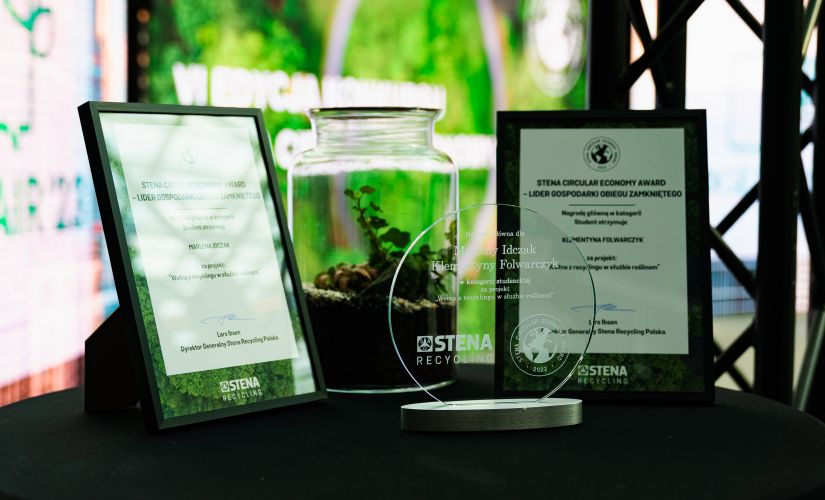Growing demand for clothes makes the fashion industry one of the largest greenhouse gas contributors. One more reason in favor of taking meaningful steps to reduce the negative impact on the environment is therefore this increase in the production of clothing which necessarily entails an ever-increasing consumption of valuable raw materials. The students' proposed a solution that seeks to reduce this negative impact by way of wool fabric recycling.
The winning project 'Recycled wool to save plants' (Wełna z recyklingu w służbie roślinom)
The winning project 'Recycled wool in the service of plants' is an excellent example of how taking a novel approach to the problem of waste can advance sustainable production and consumption. It was developed in the course of the Packaging Design course taught by mgr Anna Koziel. Students from the Faculty of OiZ submitted 21 projects in this edition of the competition.
Natural fiber from sheep fleece
Sheep wool is a unique material. It has very good insulating properties and it can absorb moisture. On top of that, it is a highly durable and fully biodegradable material. In fact, these properties provided a starting point for the discussion about reusing the material to produce a completely different product - nonwoven landscape fabric mulch.
An idea for recycling
Biotextile wool mulching is a sustainable alternative to the commonly used agrotextiles relying on fibers manufactured from oil. Biotextiles are 100% biodegradable: once decomposed in the soil, they act as a fertilizer. After it has been laid, it lets water and air pass through, but prevents the growth of weeds by blocking UV rays from reaching the soil. It shields plants from the cold. Under normal conditions, it will last at least 3 years. Biotextiles are fully compostable and do not produce harmful substances that could affect the health or growth of plants.
The students came up with the idea of recovering clothing or scraps of wool materials, recycling them, and then using them to make biobased mulching fibers as an alternative to relying on virgin wool. By using recycled wool, the amount of waste generated by human consumption will be reduced. In 3-7 years depending on the biotextile used it will have completely decomposed in the soil, which means there will not be the slightest trace left of the wool-containing waste.
Stena Circular Economy Award
The SCEA competition was launched in 2017. Its goal is to raise awareness of the benefits of the circular economy (CE) and inspire action towards it. A record number of 67 proposals were submitted in this year's edition of the competition. A jury comprising 9 members selected the winners in 3 categories: companies implementing CE, companies promoting CE ideas, and university students who wanted to promote or implement their CE ideas.
SCEA shows that the idea of circularity is been embraced by large multinational corporations, medium and small businesses, as well as startups and NGOs. The competition provides opportunities for students to develop a project that will not only support the general community and the economy, but may also be recognized by business.

